Top carbon steel pipe in China introduce,list main products and website if have
One of the top carbon steel pipe manufacturers in China is Tianjin United Steel Pipe Co., Ltd. Their main products include seamless carbon steel pipes, welded carbon steel pipes, and various accessories such as elbows, tees, and flanges.
Tianjin United Steel Pipe Co., Ltd. has a comprehensive website showcasing their products, manufacturing capabilities, quality control measures, and certifications. They have a wide range of carbon steel pipes in varying sizes, lengths, and specifications to meet the diverse needs of industries such as oil and gas, construction, and transportation.
Another major carbon steel pipe manufacturer in China is ShengQiu Precision Pipe Co., Ltd. They specialize in producing high-quality seamless carbon steel pipes for various applications, including structural, fluid transportation, and mechanical purposes. ShengQiu Precision Pipe Co., Ltd. also offers custom fabrication services to meet specific project requirements.
ShengQiu Precision Pipe Co., Ltd. has a user-friendly website where customers can explore their product offerings, technical specifications, and quality assurance processes. They prioritize customer satisfaction and strive to deliver top-notch carbon steel pipes that meet international standards.
Both Tianjin United Steel Pipe Co., Ltd. and ShengQiu Precision Pipe Co., Ltd. are reputable carbon steel pipe manufacturers in China, offering a wide range of products, reliable quality, and competitive pricing. Customers can visit their websites for more information and to place orders.
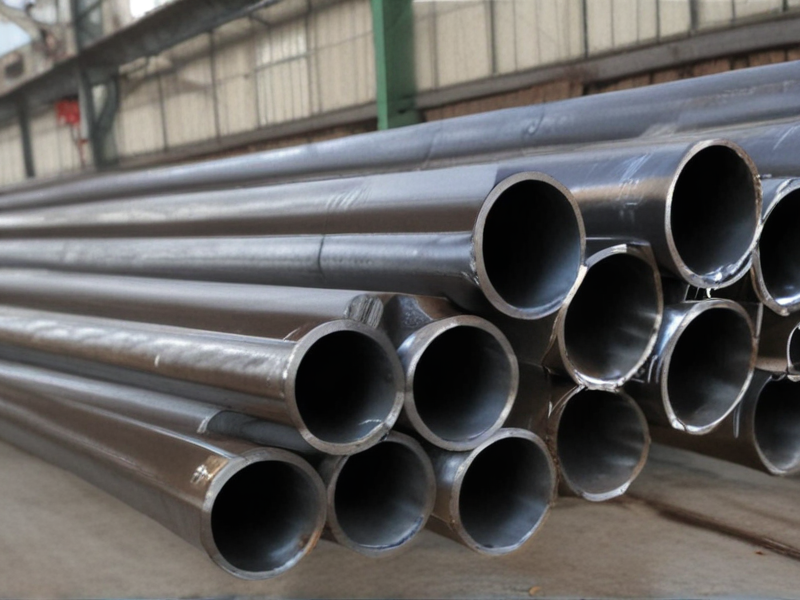
Types of carbon steel pipe
There are several types of carbon steel pipe, each with specific characteristics to suit different applications:
1. Seamless carbon steel pipe: This type of pipe is manufactured without any welding seam, resulting in a stronger and more reliable product. Seamless pipes are commonly used in high-pressure applications and where corrosion resistance is needed.
2. Welded carbon steel pipe: Welded pipes are made by welding pieces of steel together to form a cylindrical shape. They are typically less expensive than seamless pipes and are suitable for applications with lower pressure requirements.
3. ERW (Electric Resistance Welded) carbon steel pipe: ERW pipes are manufactured by cold forming steel coils into a cylindrical shape and then welding the seams. They are commonly used in construction, agriculture, and industrial applications.
4. LSAW (Longitudinal Submerged Arc Welded) carbon steel pipe: LSAW pipes are made by bending and welding steel plates together to form a cylindrical shape. These pipes are used in high-pressure applications, such as oil and gas pipelines.
5. HSAW (Helical Submerged Arc Welded) carbon steel pipe: HSAW pipes are similar to LSAW pipes but are manufactured using a helical welding process. This results in a stronger pipe that is suitable for deepwater offshore applications.
6. Spiral welded carbon steel pipe: Spiral welded pipes are made by rolling a strip of steel into a spiral shape and welding the seams together. These pipes are used in water and gas transmission lines.
Each type of carbon steel pipe has its own advantages and limitations, so it is important to consider the specific requirements of your application when selecting the right type of pipe for your project.
Pros and Cons of Using carbon steel pipe
Carbon steel pipe is a popular choice for many applications due to its durability and strength. However, like any material, it has its pros and cons.
Pros:
1. Strength and durability: Carbon steel pipe is known for its high strength and ability to withstand high pressure and heavy loads, making it a reliable choice for various applications.
2. Cost-effective: Carbon steel pipe is generally more affordable than other materials such as stainless steel or alloy, making it a cost-effective option for many projects.
3. Versatility: Carbon steel pipe can be used in a wide range of applications, from plumbing and heating to structural and industrial projects.
4. Corrosion resistance: Carbon steel pipe can be coated or painted to help prevent corrosion, making it a suitable choice for outdoor and high-moisture environments.
Cons:
1. Susceptible to corrosion: Although carbon steel pipe can be coated to prevent corrosion, it is still more prone to rusting and corrosion compared to stainless steel or other corrosion-resistant materials.
2. Limited temperature range: Carbon steel pipe is not as suitable for high-temperature applications as materials like stainless steel or alloy, as it may lose its strength and integrity at extreme temperatures.
3. Environmental impact: The production of carbon steel pipe requires the use of fossil fuels and emits carbon emissions, contributing to environmental concerns.
4. Maintenance requirements: Carbon steel pipe may require regular maintenance to prevent rust and corrosion, including inspections, cleaning, and reapplication of protective coatings.
In conclusion, carbon steel pipe offers many advantages in terms of strength, affordability, and versatility, but it also comes with some drawbacks such as susceptibility to corrosion, limited temperature range, environmental impact, and maintenance requirements. It is important to consider these factors when choosing the right material for your project.
carbon steel pipe Reference Specifications (varies for different product)
Carbon steel pipes can be manufactured in various grades and specifications, depending on the requirements of the application. Some common reference specifications for carbon steel pipes include ASTM A106 for seamless carbon steel pipe for high-temperature service, ASTM A53 for welded and seamless carbon steel pipe for use in mechanical and pressure applications, and API 5L for seamless and welded carbon steel line pipe for use in oil and gas transportation.
These specifications outline the chemical composition, mechanical properties, dimensions, and other requirements for carbon steel pipes. Grades of carbon steel pipe vary in terms of tensile strength, yield strength, and impact resistance, with higher grades generally exhibiting better performance in demanding applications.
When selecting a carbon steel pipe, it is important to consider factors such as the pressure and temperature conditions it will be subjected to, the corrosive nature of the environment, and the desired end use. Proper selection of a carbon steel pipe that meets the necessary specifications and requirements is crucial to ensuring the safe and efficient operation of the system.
In conclusion, carbon steel pipes are available in a variety of grades and specifications to suit different applications. By following the appropriate reference specifications and guidelines, users can select the right carbon steel pipe for their specific needs while maintaining the integrity and performance of the system.
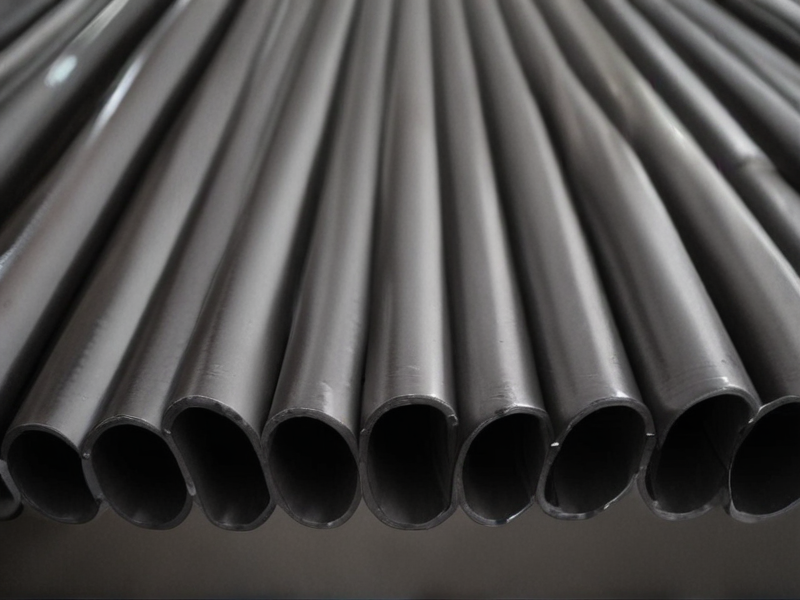
Applications of carbon steel pipe
Carbon steel pipe is widely used in various industries due to its versatility, durability, and cost-effectiveness. Some common applications of carbon steel pipe include:
1. Water and gas transportation: Carbon steel pipe is often used for the transportation of water and natural gas in municipal, industrial, and residential settings. Its high strength and corrosion resistance make it an ideal choice for these applications.
2. Oil and gas exploration and production: Carbon steel pipe is commonly used in the oil and gas industry for drilling, production, and transportation of crude oil and natural gas. Its ability to withstand high pressure and harsh environmental conditions make it an essential component in this industry.
3. Construction and infrastructure: Carbon steel pipe is used in construction projects such as building structures, bridges, and roadways. Its strength and durability make it a reliable choice for carrying fluids, gases, and other materials within buildings and infrastructure.
4. Industrial applications: Carbon steel pipe is used in various industrial applications such as steam piping, chemical processing, and power generation. Its resistance to high temperatures and corrosive substances make it suitable for these demanding environments.
5. HVAC systems: Carbon steel pipe is commonly used in heating, ventilation, and air conditioning (HVAC) systems for transporting hot and cold water, as well as air. Its thermal conductivity and strength make it a preferred choice for these applications.
In conclusion, carbon steel pipe is a versatile and reliable material that finds applications in a wide range of industries. Its strength, durability, and cost-effectiveness make it a popular choice for various piping systems and construction projects.
Material of carbon steel pipe
Carbon steel pipe is made from a combination of iron and carbon, typically with a maximum carbon content of around 2.1%. The addition of carbon to the iron makes the steel stronger and more durable, with the ability to withstand high temperatures and pressures.
Carbon steel pipes are available in various grades, including low carbon steel (also known as mild steel) and high carbon steel. The type of carbon steel used for a particular application will depend on factors such as the level of hardness and strength required, as well as the presence of other elements in the alloy.
In addition to carbon, other elements such as manganese, phosphorus, sulfur, and silicon may also be present in carbon steel pipes to improve their properties. For example, manganese can enhance the strength and toughness of the steel, while silicon helps to improve its resistance to corrosion.
The production process for carbon steel pipes typically involves the following steps: melting the raw materials in a furnace, casting the molten metal into molds, and then shaping and finishing the pipes through processes such as rolling, heating, and cooling. The pipes may also undergo additional treatments such as galvanizing or coating to further enhance their corrosion resistance.
Overall, carbon steel pipes are known for their high strength, durability, and versatility, making them suitable for a wide range of applications in industries such as oil and gas, construction, and manufacturing. With proper maintenance and care, carbon steel pipes can provide reliable and long-lasting performance in various environments.
Quality Testing Methods for carbon steel pipe and how to control the quality
There are several quality testing methods that can be used for carbon steel pipes to ensure the overall quality of the product. Some common testing methods include visual inspection, ultrasonic testing, radiographic testing, magnetic particle testing, and dye penetrant testing.
Visual inspection involves visually examining the surface of the pipe for any defects such as cracks, pits, or other imperfections. Ultrasonic testing uses high-frequency sound waves to detect imperfections within the pipe, such as wall thickness variations or cracks. Radiographic testing involves taking X-ray images of the pipe to detect any internal defects. Magnetic particle testing is used to detect surface defects on ferromagnetic materials by applying a magnetic field and observing any magnetic particles that are drawn to the defect. Dye penetrant testing involves applying a colored dye to the surface of the pipe and then using a developer to reveal any surface defects that may be present.
To control the quality of carbon steel pipes, it is essential to establish strict quality control processes and procedures throughout the manufacturing process. This may involve implementing proper handling and storage procedures to prevent damage to the pipes, conducting regular quality inspections at various stages of production, and ensuring that all testing methods are carried out according to industry standards. Additionally, it is important to use high-quality materials and adhere to all relevant specifications and regulations to ensure the final product meets the required quality standards.
In conclusion, by utilizing a combination of quality testing methods and implementing strict quality control measures throughout the manufacturing process, the quality of carbon steel pipes can be effectively controlled and maintained. This will help ensure that the final product meets the required quality standards and performs as expected in various applications.
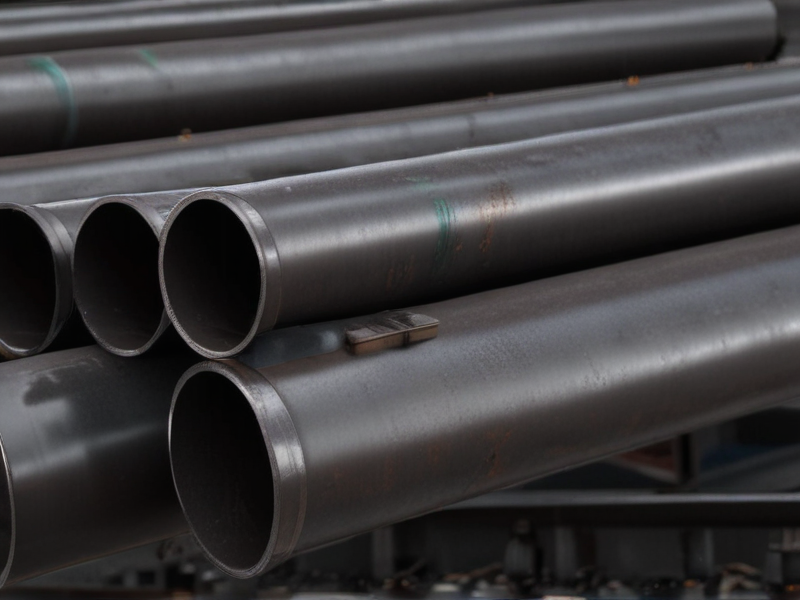
The Work Process and how to use carbon steel pipe
To begin using carbon steel pipe, it is important to first understand the work process involved in handling and installing these pipes. Carbon steel pipe is a durable and versatile material used in various industries for transporting water, gas, and other fluids.
When working with carbon steel pipes, it is crucial to prioritize safety by wearing appropriate protective gear such as gloves, goggles, and steel-toed boots. Before installation, ensure that the pipes are free from any defects or damages that may compromise their integrity.
To start, measure and cut the carbon steel pipe to the required length using a pipe cutter or hacksaw. Next, deburr the cut ends to remove any sharp edges that could potentially cause injury during installation.
After preparing the pipe, it can be joined together using appropriate fittings such as couplings, elbows, or tees. To connect the pipes, use a pipe wrench to tighten the fittings securely. It is important to ensure proper alignment and tightness to prevent leaks.
Once the pipes are connected, they can be secured in place using pipe supports or hangers to prevent sagging or movement. Finally, test the integrity of the installation by conducting a pressure test to check for any leaks or weaknesses in the system.
In conclusion, working with carbon steel pipes involves careful handling, cutting, connecting, and securing of the pipes to ensure a safe and efficient installation. By following these steps and adhering to safety guidelines, you can effectively use carbon steel pipes for various applications while maintaining the structural integrity of the system.
carbon steel pipe Importing questions including Cost,Supplier,Sample,Certification and Market
Importing carbon steel pipe can be a cost-effective option for businesses looking to source high-quality materials from global suppliers. When considering importing carbon steel pipe, it is important to factor in the cost of shipping, customs duties, and potential currency exchange rates. It is recommended to request quotes from multiple suppliers to compare costs and ensure competitive pricing.
When sourcing a supplier for carbon steel pipe, it is essential to conduct thorough research to verify their reputation, production capabilities, and quality control measures. Requesting samples from potential suppliers can help assess the quality of the product and ensure it meets your specifications.
Certifications such as ISO 9001 or API certification can demonstrate a supplier’s commitment to quality and compliance with industry standards. It is advisable to source from suppliers that hold relevant certifications to ensure the product meets regulatory requirements.
Understanding the market demand for carbon steel pipe in your region can help inform your import decisions. Researching market trends, competition, and potential growth opportunities can help tailor your sourcing strategy and ensure a successful import process.
Overall, importing carbon steel pipe can offer a cost-effective and high-quality solution for businesses in need of a reliable source of raw materials. By carefully considering factors such as cost, supplier reputation, product samples, certifications, and market demand, businesses can make informed decisions that align with their sourcing needs.
How to find and select check reliable carbon steel pipe manufacturers in China
Finding and selecting reliable carbon steel pipe manufacturers in China can be a daunting task given the large number of suppliers in the market. Here are some tips to help you find the right manufacturer:
1. Research online: Use search engines and online directories to identify potential carbon steel pipe manufacturers in China. Look for companies with a high reputation, good reviews, and a clear track record of delivering quality products.
2. Check certifications: Ensure that the manufacturer has the necessary certifications such as ISO, API, and ASTM. These certifications demonstrate that the manufacturer meets international quality standards.
3. Request samples: Before placing a large order, request samples from the manufacturer to evaluate the quality of their products. This will give you a better idea of the manufacturer’s capabilities and the quality of their products.
4. Visit the factory: If possible, visit the manufacturer’s factory to assess their production facilities, equipment, and quality control processes. This will give you a better understanding of how the manufacturer operates and whether they meet your standards.
5. Get quotes: Contact multiple manufacturers to compare prices and negotiate terms. Be wary of manufacturers that offer significantly lower prices than the market average as this could indicate lower quality products.
By following these tips, you can find and select a reliable carbon steel pipe manufacturer in China that meets your requirements and standards. Remember to prioritize quality, reliability, and reputation when making your decision.
Background Research for carbon steel pipe manufacturers Companies in China, use qcc.com archive.org importyeti.com
In China, there are numerous carbon steel pipe manufacturers that supply both domestic and international markets. Some of the prominent companies in this industry include Tianjin Pipe Corporation, Husteel Group, Baosteel Group, and Shougang Group. These companies have established themselves as leading suppliers of carbon steel pipes due to their high-quality products, advanced manufacturing techniques, and competitive pricing.
One of the key resources for finding information on carbon steel pipe manufacturers in China is QCC.com. This platform offers a comprehensive database of companies in the country, including detailed profiles, product offerings, and contact information for manufacturers in the carbon steel pipe industry.
Additionally, archived websites such as Archive.org can provide valuable historical data on the development and growth of carbon steel pipe manufacturers in China. By examining past records and company profiles, researchers can gain insights into the industry trends, market dynamics, and competitive landscape of the carbon steel pipe market in China.
ImportYeti.com is another useful tool for researchers looking to gather information on carbon steel pipe manufacturers in China. This platform provides detailed data on import and export activities, product specifications, and company profiles of suppliers in the carbon steel pipe industry. By leveraging the resources of ImportYeti.com, researchers can access real-time data on shipments, market trends, and competitive pricing strategies of carbon steel pipe manufacturers in China.
Overall, researchers can utilize these platforms to gain valuable insights into the carbon steel pipe manufacturing industry in China, including company profiles, product offerings, market dynamics, and competitive landscape. By exploring these resources, researchers can make informed decisions and identify potential business opportunities in the carbon steel pipe market in China.
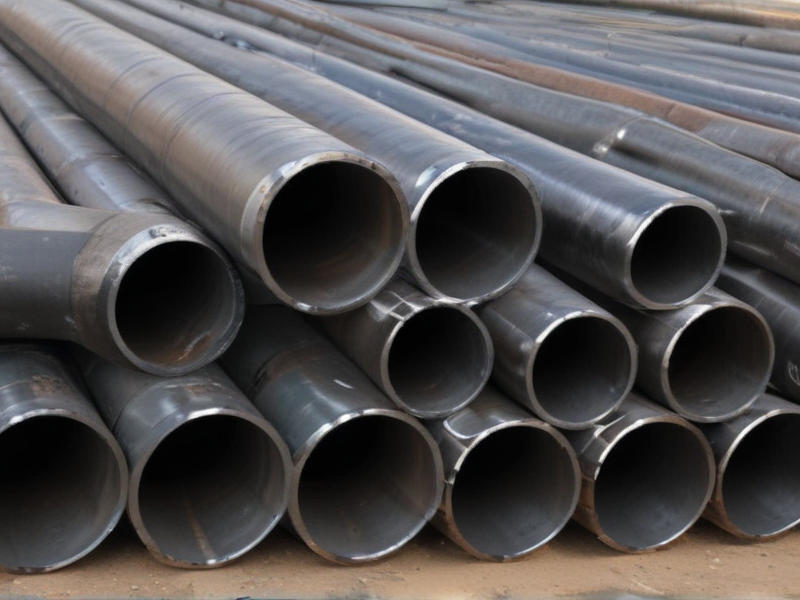
Price Cost Research for carbon steel pipe manufacturers Companies in China, use temu.com and 1688.com
When researching prices for carbon steel pipe manufacturers in China, two popular platforms to consider are temu.com and 1688.com. These websites offer a wide range of suppliers and manufacturers that specialize in carbon steel pipes.
To start your research, you can begin by searching for “carbon steel pipe manufacturers” on both websites. You can then filter your search results based on criteria such as price, minimum order quantity, and location.
It is important to compare prices from multiple suppliers to ensure you are getting the best deal. You can also reach out to suppliers directly through the websites to inquire about pricing and negotiate bulk discounts if needed.
Additionally, be sure to consider factors such as the quality of the products, manufacturing lead times, and shipping costs when making your decision. By conducting thorough research on temu.com and 1688.com, you can find reliable and cost-effective carbon steel pipe manufacturers in China that meet your specific requirements.
Shipping Cost for carbon steel pipe import from China
The shipping cost for importing carbon steel pipe from China can vary depending on several factors such as the distance to the destination, the weight and dimensions of the pipes, the shipping method chosen, and any additional services required.
For example, if you are importing a large quantity of carbon steel pipes, it may be more cost-effective to use a bulk shipping method such as ocean freight. The cost of ocean freight can range from $500 to $2000 per container, depending on the size of the container and the shipping route.
If you require faster delivery, you may opt for air freight which can cost significantly more than ocean freight. Air freight rates for carbon steel pipes can range from $2 to $5 per kilogram.
In addition to the shipping method, you may also need to consider other costs such as customs clearance, import duties, taxes, insurance, and handling fees. These costs can vary depending on the country of import and should be factored into your overall shipping expenses.
To ensure you are getting the best shipping rates for your carbon steel pipe imports from China, it is recommended to compare quotes from multiple freight forwarders and shipping companies. Working with a reliable and experienced freight forwarder can help streamline the shipping process and save you time and money in the long run.
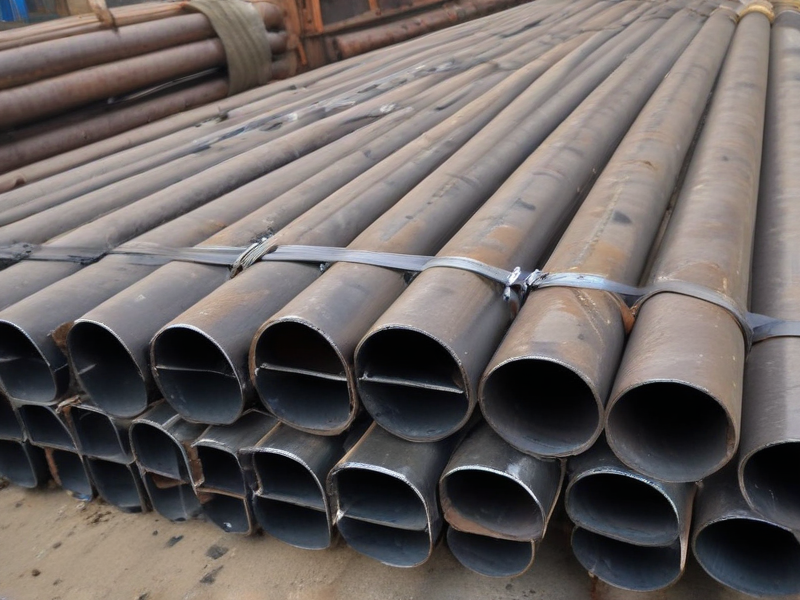
Compare China and Other carbon steel pipe Markets: Products Quality and Price,Visible and Hidden Costs
When comparing China to other carbon steel pipe markets, there are several key factors that set them apart.
Firstly, the quality of products in China may vary compared to other markets. While some Chinese manufacturers offer high-quality carbon steel pipes that meet international standards, there are also concerns about substandard products being produced. In comparison, some other markets have a stronger reputation for quality control and consistency in their products.
In terms of pricing, China is often able to offer lower prices due to lower production costs and economies of scale. This can make Chinese carbon steel pipes more competitive in the global market. However, there are also hidden costs to consider, such as longer lead times, quality control issues, and language barriers that may impact overall costs when sourcing from China.
Other markets may have higher upfront costs for carbon steel pipes, but they may offer more transparency and reliability in terms of pricing and overall costs. This can be especially important for businesses that prioritize quality and consistency in their supply chain.
Ultimately, businesses must weigh the benefits of lower prices in China against potential risks and hidden costs. It is important to carefully consider factors such as product quality, pricing, and visible and hidden costs when deciding where to source carbon steel pipes for their operations.
Custom Private Labeling and Branding Opportunities with Chinese carbon steel pipe Manufacturers
Looking to create your own brand of carbon steel pipes? Explore the custom private labeling and branding opportunities with Chinese manufacturers. With their expertise in producing high-quality carbon steel pipes, Chinese manufacturers can help you create a unique and distinctive product line that meets your specifications.
By working closely with Chinese manufacturers, you can customize your products with your own logo, branding, and packaging. This can help you create a strong brand identity and stand out in the competitive market. Whether you are looking to launch a new line of carbon steel pipes or upgrade your existing products, Chinese manufacturers can provide the expertise and resources needed to bring your vision to life.
In addition to private labeling, Chinese manufacturers can also offer a range of branding opportunities, such as custom colors, finishes, and designs. This can help you differentiate your products from competitors and attract new customers. With their competitive pricing and fast turnaround times, Chinese manufacturers can help you bring your brand to market quickly and efficiently.
Take advantage of the custom private labeling and branding opportunities with Chinese carbon steel pipe manufacturers to create a successful and profitable product line. Contact a reliable manufacturer today to discuss your branding needs and start the process of creating your own brand of carbon steel pipes.
Tips for Procurement and Considerations when Purchasing carbon steel pipe
When procuring carbon steel pipe, there are several important considerations to keep in mind to ensure you select the best quality product for your needs. Here are some tips to help you make an informed decision:
1. Material Grade: Choose the appropriate material grade based on the application and desired mechanical properties. Common grades for carbon steel pipe include ASTM A106 for seamless pipe and ASTM A53 for welded pipe.
2. Size and Dimensions: Determine the required size and dimensions of the pipe based on the specific project requirements. Consider factors such as inner and outer diameter, wall thickness, and length.
3. Coating and Protection: Consider the need for coating or protection to prevent corrosion and ensure durability. Options include galvanizing, epoxy coating, and fusion bonded epoxy.
4. Compliance and Certifications: Ensure that the carbon steel pipe meets industry standards and specifications, such as ASTM, ASME, and API. Look for certifications like ISO 9001 to guarantee quality.
5. Supplier Reliability: Choose a reputable and reliable supplier with a track record of delivering high-quality products on time. Consider factors such as lead times, customer service, and pricing.
6. Cost and Budget: Compare quotes from different suppliers to find the best value for your budget. Consider not only the initial cost of the pipe but also factors like maintenance and lifespan.
7. Application Requirements: Take into account the specific requirements of the application, such as temperature, pressure, and corrosion resistance. Select a pipe that meets these criteria to ensure optimal performance.
By following these tips and considerations, you can confidently procure carbon steel pipe that meets your needs and delivers long-lasting performance. Remember to prioritize quality, reliability, and compliance to make the best purchasing decision.
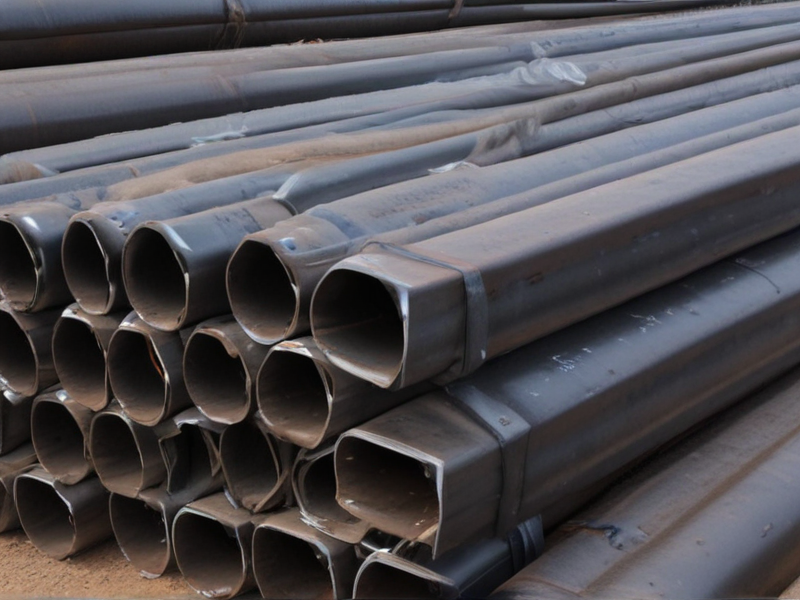
FAQs on Sourcing and Manufacturing carbon steel pipe in China
1. Where can I source carbon steel pipe in China?
There are various manufacturers and suppliers of carbon steel pipe in China. You can find them through online platforms like Alibaba, Made-in-China, or Global Sources. You can also attend trade fairs and exhibitions like Canton Fair or Bauma China to connect with potential suppliers.
2. How can I ensure the quality of carbon steel pipe from Chinese manufacturers?
It is important to conduct thorough due diligence before selecting a supplier. This includes checking their certifications, such as ISO 9001, and conducting factory audits. You can also request samples or visit their production facilities to verify the quality of their products.
3. What is the lead time for manufacturing carbon steel pipe in China?
The lead time for manufacturing carbon steel pipe in China can vary depending on the size and complexity of the order, as well as the manufacturer’s production capacity. Typically, it can range from a few weeks to a few months. It is important to communicate your requirements clearly with the supplier to ensure timely delivery.
4. What are the payment terms typically used when sourcing carbon steel pipe from China?
Payment terms can vary depending on the supplier, but common options include T/T (Telegraphic Transfer), L/C (Letter of Credit), and Paypal. It is recommended to negotiate favorable payment terms and ensure that they are clearly outlined in the purchase agreement to avoid any misunderstandings.
5. Are there any potential challenges or risks when sourcing carbon steel pipe from China?
Some potential challenges when sourcing carbon steel pipe from China include language barriers, cultural differences, and quality control issues. It is important to work with a trusted and reputable supplier, conduct thorough due diligence, and communicate effectively to minimize risks and ensure a successful sourcing process.
Why contact sourcifychina.com get free quota from reliable carbon steel pipe suppliers?
Sourcifychina.com is a trusted platform that connects buyers with reliable carbon steel pipe suppliers in China. By contacting Sourcifychina.com, you can easily get a free quota from these reputable suppliers without hassle.
Utilizing Sourcifychina.com to connect with carbon steel pipe suppliers offers several advantages. Firstly, you can access a wide range of options from various suppliers, ensuring that you find the best match for your specific requirements. The platform also provides transparency and ensures that all suppliers are vetted for their quality and reliability.
By obtaining a free quota through Sourcifychina.com, you can save time and effort in sourcing the right carbon steel pipe supplier. The process is streamlined and efficient, allowing you to make informed decisions quickly. Additionally, working with trusted suppliers reduces the risk of receiving subpar products or encountering issues with the manufacturing process.
Ultimately, Sourcifychina.com offers a convenient and reliable way to connect with reputable carbon steel pipe suppliers in China. By leveraging their platform, you can secure a free quota and access high-quality products that meet your needs. Don’t hesitate to reach out to Sourcifychina.com for your carbon steel pipe sourcing needs.
